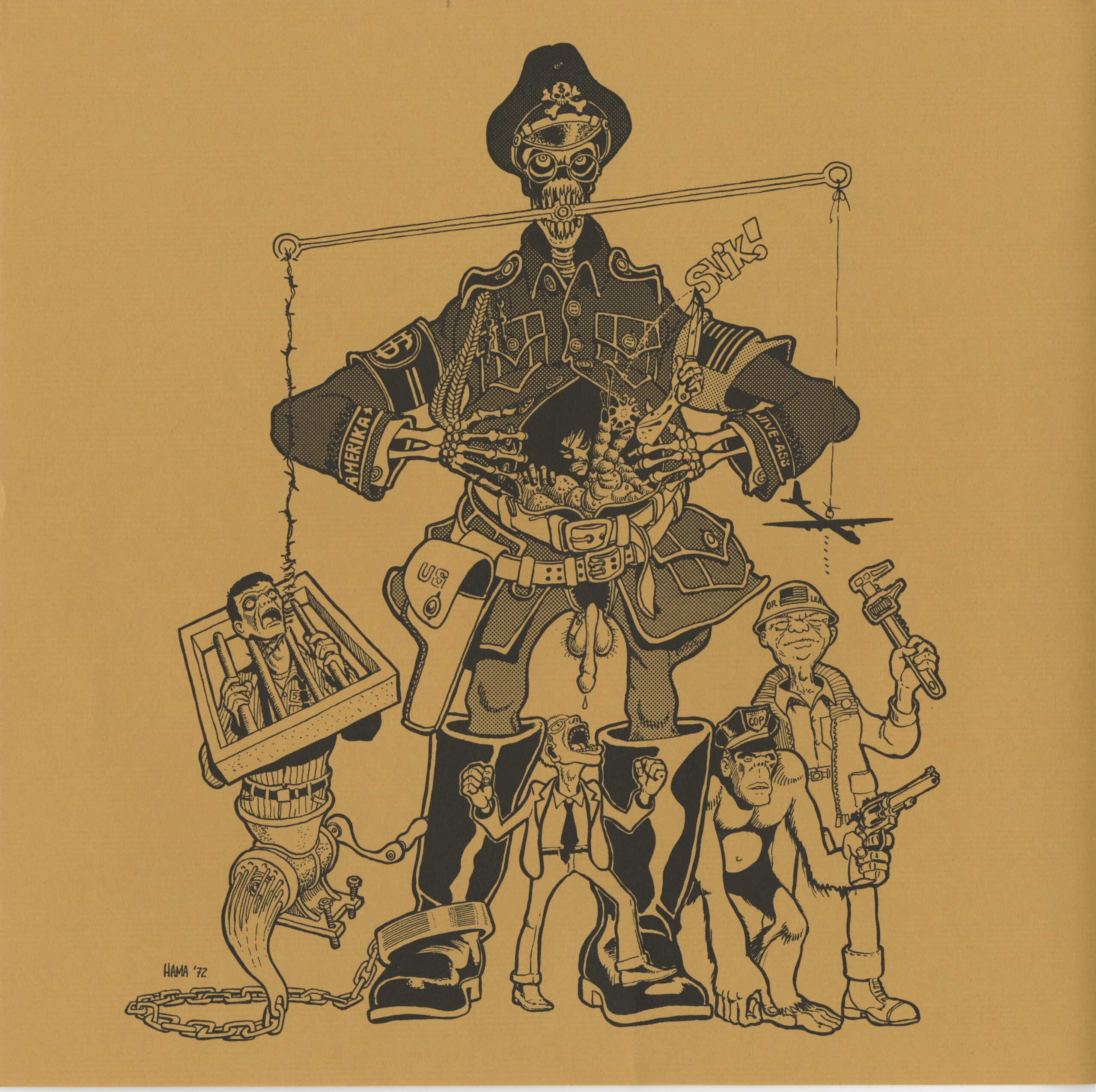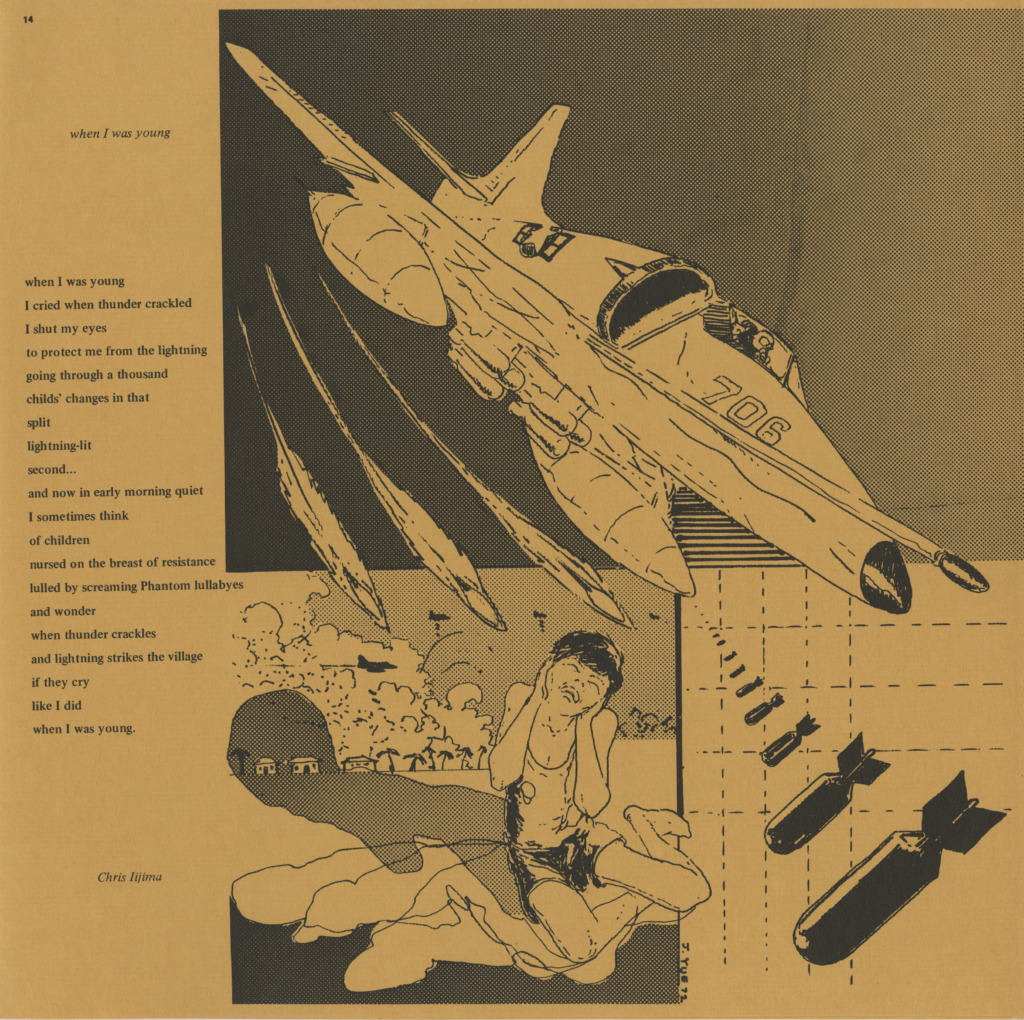Through exposure to earlier social movements of the 1960s and coverage of the Vietnam War, members of the Basement Workshop quickly developed an anti-imperialist lens. They learned to articulate this position through their art and organizing activities. Such a stance ultimately contributed to their understanding of Asian American identity and politics.
A Grain of Sand, whose members were involved in the creation of Yellow Pearl and were active in the Basement, touted their music as songs for the Asian American movement. They toured the country and used song as a connecting force for people of Asian descent. Much of their lyrics revolved around themes of imperialism, unity, and power to the people.
“This song translates rhetorical words into images that related to people’s experiences. Whether it is terms like ‘imperialism’ or ‘the global economy’ the task is still to ensure that people everywhere will someday be free from hunger and fear.”
– excerpt from A Grain of Sand album insert (1997)
Inspired by A Grain of Sand and further reflection on their own families’ immigration histories, members of the Basement worked on connecting personal experiences to wider instances of imperialist violence. Japanese American artists like Tomie Arai and Larry Hama utilized their talents in Yellow Pearl and issues of Bridge to critique western imperialism in Southeast Asia. They linked racism experienced in the United States to a transnational system of imperialist hegemony and militarist aggression.


Notably, Bridge editorial staff utilized their platform to correspond directly with candidates for the 1972 US presidential election. As one of the only uniquely Asian American national publications, the staff sent letters to all candidates, urging them to respond to inquiries on issues of importance to Asian Americans. This included their stances on the Vietnam War and if racism played a role in US presence in Southeast Asia.
Review an excerpt from the publication for detailed responses from the presidential candidates.







